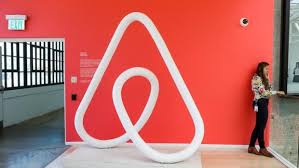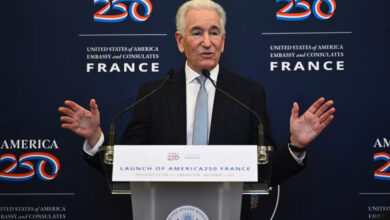
Business travelers to France are in the sights of online rental marketplace Airbnb, according to a senior official on Thursday at the company best known for hosting holidaymakers.
Airbnb For Business was launched in 2015 for companies looking for new and cheaper ways to accommodate staff on business trips and for Airbnb to keep up its rapid expansion.
Business travel is growing faster than leisure travel and corporate customers now account for some 15 percent of rental nights booked on Airbnb. The goal is to lift that ratio to 30 percent by 2020.
“We think there are very good prospects for Airbnb in business travel and France is definitely a market we are looking at,” Jon Liebtag, Airbnb’s head of business travel for EMEA told Reuters, mentioning Germany and Britain too.
In France last year the number of stays booked on Airbnb by business travelers grew four-fold.
With over 400,000 listings, France is Airbnb’s second largest market after the United States, and Paris, the most visited city in the world, is its biggest single market, with 65,000 homes listed.
AMBITIONS UNCHECKED
Founded in San Francisco in 2008, Airbnb, which matches people wishing to rent out all or part of their homes to temporary guests, has become a mainstay for holidaymakers.
Liebtag, who moved from San Francisco to London in April to spearhead the European push, was in Paris on Thursday to meet potential corporate clients.
“Right now we focus mostly on Paris but we will expand elsewhere in France,” he said.
Initial corporate clients include tech-focused groups like BlablaCar, Europe’s biggest ride-sharing start-up, but Airbnb is seeing larger more established firms joining, such as Morgan Stanley and Ernst & Young.
Worldwide, business travel spending reached $1.3 trillion in 2016 and is estimated to grow by 6.1 percent in 2018 and 7 percent in 2019 and 2020, according to the Global Business Travel Association.
In France, business-travel spending was $38.6 billion in 2016 and is expected to reach $56.2 billion in 2021.
Airbnb has launched “Business Travel Ready”, through which users can select accommodation which fulfill requirements such as Wi-Fi, 24-hour check-in and a laptop-ready workspace.
NOT ALL PLAIN SAILING
The firm has clashed with hoteliers and authorities in cities from New York to Amsterdam, Berlin and Paris which in some cases are limiting short-term rentals. Critics accuse it of exacerbating housing shortages and driving out lower-income residents.
Its push into business travel may attract further ire from traditional hotel groups, which see Airbnb as unfair competition. Some 48 percent of bookings at hotels in France are for business travel in France. That ratio is as high as 60 percent for AccorHotel (ACCP.PA), Europe’s largest hotelier.
Liebtag played down those concerns.
“I do not look at hotels as a competition for this type of travel. We are not going after the road warriors who are traveling 100 days a year,” he said.
An estimated 60 percent of Airbnb customers are tech-savvy “millennials”.
“Business travel is the loneliest type of travel away from your family and friends. You want to feel at home and the ability to live like a local,” Liebtag said.
Privately-held Airbnb raised $1 billion in its latest round of funding in March, valuing the company at $31 billion. The company which operates in more than 65,000 cities worldwide turned profitable in the second quarter of 2016.




